Science Vs Religion Quotes
Quotes tagged as "science-vs-religion"
Showing 1-30 of 140
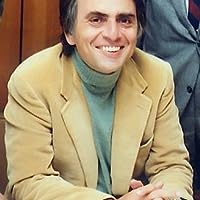
“Science is not only compatible with spirituality; it is a profound source of spirituality. When we recognize our place in an immensity of light‐years and in the passage of ages, when we grasp the intricacy, beauty, and subtlety of life, then that soaring feeling, that sense of elation and humility combined, is surely spiritual. So are our emotions in the presence of great art or music or literature, or acts of exemplary selfless courage such as those of Mohandas Gandhi or Martin Luther King, Jr. The notion that science and spirituality are somehow mutually exclusive does a disservice to both.”
― The Demon-Haunted World: Science as a Candle in the Dark
― The Demon-Haunted World: Science as a Candle in the Dark

“Note, to-day, an instructive, curious spectacle and conflict. Science, (twin, in its fields, of Democracy in its)—Science, testing absolutely all thoughts, all works, has already burst well upon the world—a sun, mounting, most illuminating, most glorious—surely never again to set. But against it, deeply entrench'd, holding possession, yet remains, (not only through the churches and schools, but by imaginative literature, and unregenerate poetry,) the fossil theology of the mythic-materialistic, superstitious, untaught and credulous, fable-loving, primitive ages of humanity.”
― Complete Prose Works
― Complete Prose Works

“Ignorance is hardly unusual, Miss Davar. The longer I live, the more I come to realize that it is the natural state of the human mind. There are many who will strive to defend its sanctity and then expect you to be impressed with their efforts.”
― The Way of Kings
― The Way of Kings
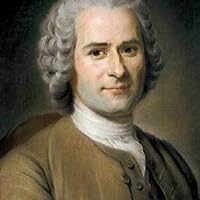
“They say that Caliph Omar, when consulted about what had to be done with the library of Alexandria, answered as follows: 'If the books of this library contain matters opposed to the Koran, they are bad and must be burned. If they contain only the doctrine of the Koran, burn them anyway, for they are superfluous.' Our learned men have cited this reasoning as the height of absurdity. However, suppose Gregory the Great was there instead of Omar and the Gospel instead of the Koran. The library would still have been burned, and that might well have been the finest moment in the life of this illustrious pontiff.”
― Discourse on the Sciences and Arts and Polemics
― Discourse on the Sciences and Arts and Polemics

“Ann Druyan suggests an experiment: Look back again at the pale blue dot of the preceding chapter. Take a good long look at it. Stare at the dot for any length of time and then try to convince yourself that God created the whole Universe for one of the 10 million or so species of life that inhabit that speck of dust. Now take it a step further: Imagine that everything was made just for a single shade of that species, or gender, or ethnic or religious subdivision. If this doesn’t strike you as unlikely, pick another dot. Imagine it to be inhabited by a different form of intelligent life. They, too, cherish the notion of a God who has created everything for their benefit. How seriously do you take their claim?”
― Pale Blue Dot: A Vision of the Human Future in Space
― Pale Blue Dot: A Vision of the Human Future in Space
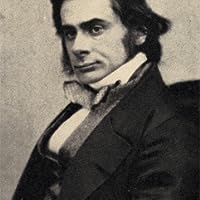
“The man of science has learned to believe in justification, not by faith, but by verification.”
― Collected Essays of Thomas Henry Huxley
― Collected Essays of Thomas Henry Huxley

“There exists indeed an opposition to it [building of UVA, Jefferson's secular college] by the friends of William and Mary, which is not strong. The most restive is that of the priests of the different religious sects, who dread the advance of science as witches do the approach of day-light; and scowl on it the fatal harbinger announcing the subversion of the duperies on which they live. In this the Presbyterian clergy take the lead. The tocsin is sounded in all their pulpits, and the first alarm denounced is against the particular creed of Doctr. Cooper; and as impudently denounced as if they really knew what it is.
[Letter to José Francesco Corrê a Da Serra - Monticello, April 11, 1820]”
― Letters of Thomas Jefferson
[Letter to José Francesco Corrê a Da Serra - Monticello, April 11, 1820]”
― Letters of Thomas Jefferson
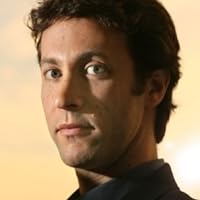
“Imagine for a moment that we are nothing but the product of billions of years of molecules coming together and ratcheting up through natural selection, that we are composed only of highways of fluids and chemicals sliding along roadways within billions of dancing cells, that trillions of synaptic conversations hum in parallel, that this vast egglike fabric of micron-thin circuitry runs algorithms undreamt of in modern science, and that these neural programs give rise to our decision making, loves, desires, fears, and aspirations. To me, that understanding would be a numinous experience, better than anything ever proposed in anyone's holy text.”
― Incognito: The Secret Lives of the Brain
― Incognito: The Secret Lives of the Brain
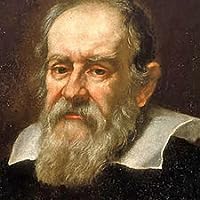
“I esteem myself happy to have as great an ally as you in my search for truth. I will read your work ... all the more willingly because I have for many years been a partisan of the Copernican view because it reveals to me the causes of many natural phenomena that are entirely incomprehensible in the light of the generally accepted hypothesis. To refute the latter I have collected many proofs, but I do not publish them, because I am deterred by the fate of our teacher Copernicus who, although he had won immortal fame with a few, was ridiculed and condemned by countless people (for very great is the number of the stupid).
{Letter to fellow revolutionary astronomer Johannes Kepelr}”
― Frammenti e lettere
{Letter to fellow revolutionary astronomer Johannes Kepelr}”
― Frammenti e lettere

“Think of how many religions attempt to validate themselves with prophecy. Think of how many people rely on these prophecies, however vague, however unfulfilled, to support or prop up their beliefs. Yet has there ever been a religion with the prophetic accuracy and reliability of science? ... No other human institution comes close.”
― The Demon-Haunted World: Science as a Candle in the Dark
― The Demon-Haunted World: Science as a Candle in the Dark

“...Turn our thoughts, in the next place, to the characters of learned men. The priesthood have, in all ancient nations, nearly monopolized learning. Read over again all the accounts we have of Hindoos, Chaldeans, Persians, Greeks, Romans, Celts, Teutons, we shall find that priests had all the knowledge, and really governed all mankind. Examine Mahometanism, trace Christianity from its first promulgation; knowledge has been almost exclusively confined to the clergy. And, even since the Reformation, when or where has existed a Protestant or dissenting sect who would tolerate a free inquiry? The blackest billingsgate, the most ungentlemanly insolence, the most yahooish brutality is patiently endured, countenanced, propagated, and applauded. But touch a solemn truth in collision with a dogma of a sect, though capable of the clearest proof, and you will soon find you have disturbed a nest, and the hornets will swarm about your legs and hands, and fly into your face and eyes.
[Letters to John Taylor, 1814, XVIII, p. 484]”
― The Letters of John and Abigail Adams
[Letters to John Taylor, 1814, XVIII, p. 484]”
― The Letters of John and Abigail Adams

“The science, the art, the jurisprudence, the chief political and social theories, of the modern world have grown out of Greece and Rome—not by favour of, but in the teeth of, the fundamental teachings of early Christianity, to which science, art, and any serious occupation with the things of this world were alike despicable.”
― Agnosticism and Christianity and Other Essays
― Agnosticism and Christianity and Other Essays

“Extinguished theologians lie about the cradle of every science as the strangled snakes beside that of Hercules; and history records that whenever science and orthodoxy have been fairly opposed, the latter has been forced to retire from the lists, bleeding and crushed if not annihilated; scotched, if not slain.”
― Lay Sermons, Addresses, And Reviews
― Lay Sermons, Addresses, And Reviews
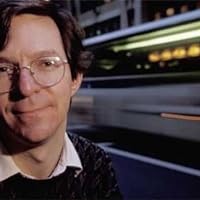
“Each religion makes scores of purportedly factual assertions about everything from the creation of the universe to the afterlife. But on what grounds can believers presume to know that these assertions are true? The reasons they give are various, but the ultimate justification for most religious people’s beliefs is a simple one: we believe what we believe because our holy scriptures say so. But how, then, do we know that our holy scriptures are factually accurate? Because the scriptures themselves say so. Theologians specialize in weaving elaborate webs of verbiage to avoid saying anything quite so bluntly, but this gem of circular reasoning really is the epistemological bottom line on which all 'faith' is grounded. In the words of Pope John Paul II: 'By the authority of his absolute transcendence, God who makes himself known is also the source of the credibility of what he reveals.' It goes without saying that this begs the question of whether the texts at issue really were authored or inspired by God, and on what grounds one knows this. 'Faith' is not in fact a rejection of reason, but simply a lazy acceptance of bad reasons. 'Faith' is the pseudo-justification that some people trot out when they want to make claims without the necessary evidence.
But of course we never apply these lax standards of evidence to the claims made in the other fellow’s holy scriptures: when it comes to religions other than one’s own, religious people are as rational as everyone else. Only our own religion, whatever it may be, seems to merit some special dispensation from the general standards of evidence.
And here, it seems to me, is the crux of the conflict between religion and science. Not the religious rejection of specific scientific theories (be it heliocentrism in the 17th century or evolutionary biology today); over time most religions do find some way to make peace with well-established science. Rather, the scientific worldview and the religious worldview come into conflict over a far more fundamental question: namely, what constitutes evidence.
Science relies on publicly reproducible sense experience (that is, experiments and observations) combined with rational reflection on those empirical observations. Religious people acknowledge the validity of that method, but then claim to be in the possession of additional methods for obtaining reliable knowledge of factual matters — methods that go beyond the mere assessment of empirical evidence — such as intuition, revelation, or the reliance on sacred texts. But the trouble is this: What good reason do we have to believe that such methods work, in the sense of steering us systematically (even if not invariably) towards true beliefs rather than towards false ones? At least in the domains where we have been able to test these methods — astronomy, geology and history, for instance — they have not proven terribly reliable. Why should we expect them to work any better when we apply them to problems that are even more difficult, such as the fundamental nature of the universe?
Last but not least, these non-empirical methods suffer from an insuperable logical problem: What should we do when different people’s intuitions or revelations conflict? How can we know which of the many purportedly sacred texts — whose assertions frequently contradict one another — are in fact sacred?”
―
But of course we never apply these lax standards of evidence to the claims made in the other fellow’s holy scriptures: when it comes to religions other than one’s own, religious people are as rational as everyone else. Only our own religion, whatever it may be, seems to merit some special dispensation from the general standards of evidence.
And here, it seems to me, is the crux of the conflict between religion and science. Not the religious rejection of specific scientific theories (be it heliocentrism in the 17th century or evolutionary biology today); over time most religions do find some way to make peace with well-established science. Rather, the scientific worldview and the religious worldview come into conflict over a far more fundamental question: namely, what constitutes evidence.
Science relies on publicly reproducible sense experience (that is, experiments and observations) combined with rational reflection on those empirical observations. Religious people acknowledge the validity of that method, but then claim to be in the possession of additional methods for obtaining reliable knowledge of factual matters — methods that go beyond the mere assessment of empirical evidence — such as intuition, revelation, or the reliance on sacred texts. But the trouble is this: What good reason do we have to believe that such methods work, in the sense of steering us systematically (even if not invariably) towards true beliefs rather than towards false ones? At least in the domains where we have been able to test these methods — astronomy, geology and history, for instance — they have not proven terribly reliable. Why should we expect them to work any better when we apply them to problems that are even more difficult, such as the fundamental nature of the universe?
Last but not least, these non-empirical methods suffer from an insuperable logical problem: What should we do when different people’s intuitions or revelations conflict? How can we know which of the many purportedly sacred texts — whose assertions frequently contradict one another — are in fact sacred?”
―
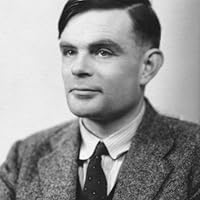
“I am not very impressed with theological arguments whatever they may be used to support. Such arguments have often been found unsatisfactory in the past. In the time of Galileo it was argued that the texts, 'And the sun stood still... and hasted not to go down about a whole day' (Joshua x. 13) and 'He laid the foundations of the earth, that it should not move at any time' (Psalm cv. 5) were an adequate refutation of the Copernican theory.”
― Computing machinery and intelligence
― Computing machinery and intelligence

“It is the natural tendency of the ignorant to believe what is not true. In order to overcome that tendency it is not sufficient to exhibit the true; it is also necessary to expose and denounce the false. To admit that the false has any standing in court, that it ought to be handled gently because millions of morons cherish it and thousands of quacks make their livings propagating it—to admit this, as the more fatuous of the reconcilers of science and religion inevitably do, is to abandon a just cause to its enemies, cravenly and without excuse.”
― American Mercury
― American Mercury

“You frequently state, and in your letter you imply, that I have developed a completely one-sided outlook and look at everything in terms of science. Obviously my method of thought and reasoning is influenced by a scientific training – if that were not so my scientific training will have been a waste and a failure. But you look at science (or at least talk of it) as some sort of demoralizing invention of man, something apart from real life, and which must be cautiously guarded and kept separate from everyday existence. But science and everyday life cannot and should not be separated. Science, for me, gives a partial explanation of life. In so far as it goes, it is based on fact, experience and experiment. Your theories are those which you and many other people find easiest and pleasantest to believe, but so far as I can see, they have no foundation other than they leaf to a pleasanter view of life (and an exaggerated idea of our own importance)...
I agree that faith is essential to success in life (success of any sort) but I do not accept your definition of faith, i.e. belief in life after death. In my view, all that is necessary for faith is the belief that by doing our best we shall come nearer to success and that success in our aims (the improvement of the lot of mankind, present and future) is worth attaining. Anyone able to believe in all that religion implies obviously must have such faith, but I maintain that faith in this world is perfectly possible without faith in another world…
It has just occurred to me that you may raise the question of the creator. A creator of what? ... I see no reason to believe that a creator of protoplasm or primeval matter, if such there be, has any reason to be interested in our significant race in a tiny corner of the universe, and still less in us, as still more significant individuals. Again, I see no reason why the belief that we are insignificant or fortuitous should lessen our faith – as I have defined it.”
―
I agree that faith is essential to success in life (success of any sort) but I do not accept your definition of faith, i.e. belief in life after death. In my view, all that is necessary for faith is the belief that by doing our best we shall come nearer to success and that success in our aims (the improvement of the lot of mankind, present and future) is worth attaining. Anyone able to believe in all that religion implies obviously must have such faith, but I maintain that faith in this world is perfectly possible without faith in another world…
It has just occurred to me that you may raise the question of the creator. A creator of what? ... I see no reason to believe that a creator of protoplasm or primeval matter, if such there be, has any reason to be interested in our significant race in a tiny corner of the universe, and still less in us, as still more significant individuals. Again, I see no reason why the belief that we are insignificant or fortuitous should lessen our faith – as I have defined it.”
―
“The history of Science is not a mere record of isolated discoveries; it is a narrative of the conflict of two contending powers, the expansive force of the human intellect on one side, and the compression arising from traditionary faith and human interests on the other.”
― History of the Conflict Between Religion and Science
― History of the Conflict Between Religion and Science

“Humans may crave absolute certainty; they may aspire to it; they may pretend, as partisans of certain religions do, to have attained it. But the history of science — by far the most successful claim to knowledge accessible to humans — teaches that the most we can hope for is successive improvement in our understanding, learning from our mistakes, an asymptotic approach to the Universe, but with the proviso that absolute certainty will always elude us.”
― The Demon-Haunted World: Science as a Candle in the Dark
― The Demon-Haunted World: Science as a Candle in the Dark
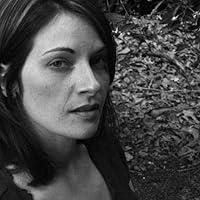
“I don't argue things being spiritual vs scientific, because I've never met anyone who knows enough about either to be convincing--including myself.”
―
―
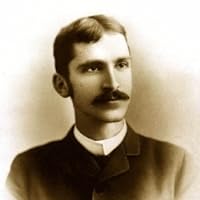
“Faith in the possibilities of continued and rigorous inquiry does not limit access to truth to any channel or scheme of things. It does not first say that truth is universal and then add there is but one road to it.”
― A Common Faith
― A Common Faith
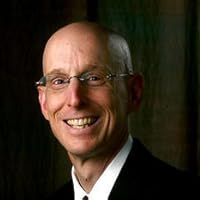
“There isn't anything to worry about between science and religion, because the contradictions are just in your own mind. Of course they are there, but they are not in the Lord's mind because He made the whole thing, so there is a way, if we are smart enough, to understand them so that we will not have any contradictions.”
―
―

“After an injunction had been judicially intimated to me by this Holy Office, to the effect that I must altogether abandon the false opinion that the sun is the center of the world and immovable, and that the earth is not the center of the world, and moves, and that I must not hold, defend, or teach in any way whatsoever, verbally or in writing, the said false doctrine, and after it had been notified to me that the said doctrine was contrary to Holy Scripture — I wrote and printed a book in which I discuss this new doctrine already condemned, and adduce arguments of great cogency in its favor, without presenting any solution of these, and for this reason I have been pronounced by the Holy Office to be vehemently suspected of heresy, that is to say, of having held and believed that the Sun is the center of the world and immovable, and that the earth is not the center and moves:
Therefore, desiring to remove from the minds of your Eminences, and of all faithful Christians, this vehement suspicion, justly conceived against me, with sincere heart and unfeigned faith I abjure, curse, and detest the aforesaid errors and heresies, and generally every other error, heresy, and sect whatsoever contrary to the said Holy Church, and I swear that in the future I will never again say or assert, verbally or in writing, anything that might furnish occasion for a similar suspicion regarding me; but that should I know any heretic, or person suspected of heresy, I will denounce him to this Holy Office, or to the Inquisitor or Ordinary of the place where I may be. Further, I swear and promise to fulfill and observe in their integrity all penances that have been, or that shall be, imposed upon me by this Holy Office. And, in the event of my contravening, any of these my promises and oaths, I submit myself to all the pains and penalties imposed and promulgated in the sacred canons and other constitutions, general and particular, against such delinquents.”
― Dialogue Concerning the Two Chief World Systems: Ptolemaic and Copernican
Therefore, desiring to remove from the minds of your Eminences, and of all faithful Christians, this vehement suspicion, justly conceived against me, with sincere heart and unfeigned faith I abjure, curse, and detest the aforesaid errors and heresies, and generally every other error, heresy, and sect whatsoever contrary to the said Holy Church, and I swear that in the future I will never again say or assert, verbally or in writing, anything that might furnish occasion for a similar suspicion regarding me; but that should I know any heretic, or person suspected of heresy, I will denounce him to this Holy Office, or to the Inquisitor or Ordinary of the place where I may be. Further, I swear and promise to fulfill and observe in their integrity all penances that have been, or that shall be, imposed upon me by this Holy Office. And, in the event of my contravening, any of these my promises and oaths, I submit myself to all the pains and penalties imposed and promulgated in the sacred canons and other constitutions, general and particular, against such delinquents.”
― Dialogue Concerning the Two Chief World Systems: Ptolemaic and Copernican

“Forget everything you ordinarily associate with religious study. Strip away all the reverence and the awe and the art and the philosophy of it. Treat the subject coldly. Imagine yourself to be a theologist, but a special kind of theologist, one who studies gods the way an entomologist studies insects. Take as your dataset the entirety of world mythology and treat it as a collection of field observations and statistics pertaining to a hypothetical species: the god. Proceed from there.”
― The Magician King
― The Magician King
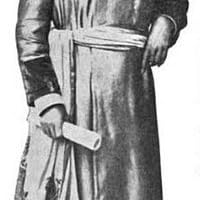
“In our country religion is not different from philosophy and religion & philosophy don’t differ from science.”
―
―
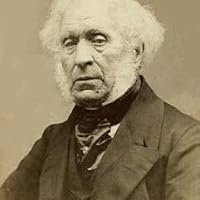
“Thus identified with astronomy, in proclaiming truths supposed to be hostile to Scripture, Geology has been denounced as the enemy of religion. The twin sisters of terrestrial and celestial physics have thus been joint-heirs of intolerance and persecution—unresisting victims in the crusade which ignorance and fanaticism are ever waging against science. When great truths are driven to make an appeal to reason, knowledge becomes criminal, and philosophers martyrs. Truth, however, like all moral powers, can neither be checked nor extinguished. When compressed, it but reacts the more. It crushes where it cannot expand—it burns where it is not allowed to shine. Human when originally divulged, it becomes divine when finally established. At first, the breath of a rage—at last it is the edict of a god. Endowed with such vital energy, astronomical truth has cut its way through the thick darkness of superstitious times, and, cheered by its conquests, Geology will find the same open path when it has triumphed over the less formidable obstacles of a civilized age.”
― More Worlds Than One: The Creed of the Philosopher and the Hope of the Christian
― More Worlds Than One: The Creed of the Philosopher and the Hope of the Christian

“But we have no [Marian] apparitions cautioning the Church against, say, accepting the delusion of an Earth-centered Universe, or warning it of complicity with Nazi Germany — two matters of considerable moral as well as historical import....
Not a single saint criticized the practice of torturing and burning “witches” and heretics. Why not? Were they unaware of what was going on? Could they not grasp its evil? And why is [the Virgin] Mary always admonishing the poor peasant to inform the authorities? Why doesn’t she admonish the authorities herself? Or the King? Or the Pope?”
― The Demon-Haunted World: Science as a Candle in the Dark
Not a single saint criticized the practice of torturing and burning “witches” and heretics. Why not? Were they unaware of what was going on? Could they not grasp its evil? And why is [the Virgin] Mary always admonishing the poor peasant to inform the authorities? Why doesn’t she admonish the authorities herself? Or the King? Or the Pope?”
― The Demon-Haunted World: Science as a Candle in the Dark
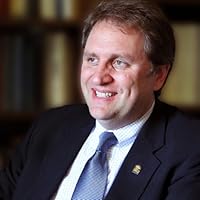
“Every leader-writer who thunders ‘Galileo’ at us assumes that we know even less about Galileo than he does.”
― Common Sense 101: Lessons from Chesterton
― Common Sense 101: Lessons from Chesterton
All Quotes
|
My Quotes
|
Add A Quote
Browse By Tag
- Love Quotes 96.5k
- Life Quotes 75.5k
- Inspirational Quotes 72k
- Humor Quotes 43.5k
- Philosophy Quotes 29.5k
- Inspirational Quotes Quotes 26.5k
- God Quotes 26k
- Truth Quotes 23.5k
- Wisdom Quotes 23.5k
- Romance Quotes 22.5k
- Poetry Quotes 22k
- Death Quotes 20k
- Happiness Quotes 18.5k
- Life Lessons Quotes 18.5k
- Hope Quotes 17.5k
- Faith Quotes 17.5k
- Quotes Quotes 16.5k
- Inspiration Quotes 16.5k
- Spirituality Quotes 15k
- Religion Quotes 15k
- Motivational Quotes 14.5k
- Writing Quotes 14.5k
- Relationships Quotes 14.5k
- Life Quotes Quotes 14k
- Love Quotes Quotes 13.5k
- Success Quotes 13.5k
- Time Quotes 12k
- Motivation Quotes 12k
- Science Quotes 11.5k
- Knowledge Quotes 11k



